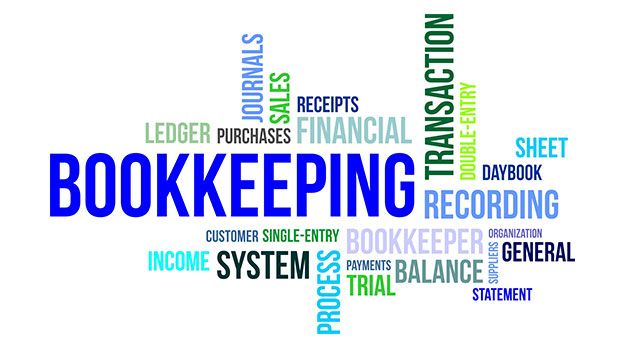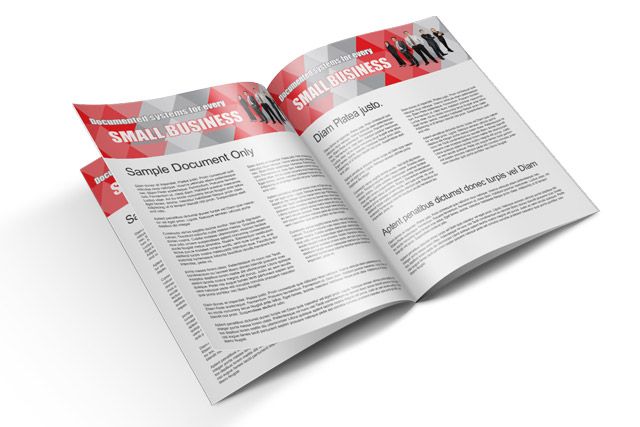
How can your Accountant assist you?
Issue 0040
Over the last 12 months, there has been a lot of discussion amongst accountants as to how they can best respond to the market trends that are occurring which have been supported by various surveys of small business operators – that small/medium enterprises in Australia and New Zealand want to receive additional business services from their accountant.
In the first instance, I believe you should be sitting down with your accountant so that your accountant can assist you and spend some time, on a weekly basis, working ON your business, rather than continually working IN your business.
Some of the items that you might consider in these conversations include:
- What does your accountant think of your business?
- Have they prepared a SWOT analysis (strengths, weaknesses, opportunities and threats)?
- What do the management financial accounts for your business indicate? Please ensure that those accounts are prepared on an individual business basis, not all being lumped together in one Profit & Loss Account.
- What are the Key Performance Indicators (KPIs) and ratios?
- How does your business line up and benchmark against other businesses? If you would like a benchmarking report prepared, please talk to your accountants.
- How does your business compare with budgets and cashflow forecasts when compared to your actual results?
- Is there any cost reviews you would like undertaken in your business? Accountants are well aware that, in a survey conducted 2 ½ years ago by CCH on 1,348 small/medium enterprises, identified cost management as the biggest single problem that small/medium enterprises have.
Other items to consider include:
Business Plans
- Do you have a business plan?
- Is your business plan up to date?
- Does your business plan reflect your current business operations?
- Do you need a business plan prepared to assist you in achieving your targets?
Financial Areas
Do you need some assistance in negotiations with your bank for an increase in an overdraft or a new loan facility?
Capital Raising
Have you thought about the initiatives that the Federal government is currently processing through the Parliament for amendments to the Corporations Code, to enable crowd funding equity companies to be legally formed in Australia, as well as innovation companies?
The crowd funding companies will be able to raise up to $5M, with the maximum retail investor limited to $10,000 per company per annum. This is going to bring about considerable amounts of work with which your accountants can assist you.
The other type of new company is an innovation company. This company is going to have special benefits for investors to obtain a taxation rebate on their investment and also a Capital Gains Tax holiday.
Training
Do your team need some support with extra training on how to understand financial accounts, KPIs and ratios? Do they need assistance in trying to personalise these types of accounting reports to the circumstances within your business?
If so, your accountant could assist you in undertaking those training courses and you could probably also receive some grant support from the Federal government’s skill development program. Ask your accountant to look into that.
Grants that are available
At the same time, have a look at any other grants which you might be able to avail yourselves, such as:
- Research and Development (must be a company)
- Export Market Development Grant – you need to be an exporter and you can also claim that grant if you’re proposing to export
- Business Growth Grant – available for about 650 different types of businesses in Australia
There are always some changes going on in this whole area of grants. A couple of weeks ago, the Business Development Grant was changed yet again to include the tourism industry in Northern Australia (area North of Tropic of Capricorn, which starts in Rockhampton, Queensland).
PPSR Due Diligence
Are you aware of the Personal Property Securities Act (PPSA) and the associated Personal Property Securities Register (PPSR)? If not, please ask your accountant to explain to you how this legislation works.Unfortunately, through ignorance of the PPSA Legislation, millions of dollars have been lost by Australian and international businesses operating in Australia. Indeed, only a few weeks ago, the NSW Supreme Court issued a judgement on a case in Western Australia that involved a major international corporation from the USA, which lost $60M worth of assets because they had not registered on the PPSR.Don’t let the words “personal property” confuse you. This is “business property”. Why it was called “personal property”, I have no idea.
Succession Planning
Have you got a succession plan?
A succession plan is not something that you prepare just when you’re wanting to sell your business. It should be something that’s embedded in your organisation at every level. Your accountant can assist you.
Intellectual Property
- • Have you got a strategy to protect the Intellectual Property (IP) that has been produced within your business?
• Do you have appropriate protection?
• Are you applying for patents if appropriate?Debtors
• Do you have a debtors’ management system?
• Do you know your debtors’ days outstanding figure?
• Do you think that figure could be improved, which could unleash significant cashflow benefits?Your accountant can assist you.Vision
• What’s your vision for your business?
• Why not write it down?
• Where do you want your business to be in 3, 5 and 10 years’ time?Discuss that vision with your accountant.
At the same time, you could write down what you believe the valuation of your business, then you could ask your accountant to tell you what he/she believes your business is currently worth. Invariably, there would be a difference. This is known as the “valuation gap”. In most cases, it seems that the owners of the business have a higher expectation of value than what their accountants do, that’s OK. You’ve then identified the differences between the 2 figures – the “valuation gap”. Your accountant should then be able to prepare for you a strategy plan for the next 3 or 5 years, to assist with the implementation of business strategies for the bridging of the “valuation gap”.
Find an Accountant
If you would like to find an accountant who can offer the types of services mentioned in this edition, generally knows as business advisory services, a Find an Accountant/Adviser directory within the ESS Small Business’ website. Please visit www.esssmallbusiness.com.au and click on “Find an Accountant/Adviser” menu. All you need to do is to type in your postcode and the system will then show you accountants in or near your postcode who offer a wider range of commercial services to small/medium enterprises.
If you would like to obtain more information, a complimentary article, “Characteristics of a Well Run Business”, is available. Download below.
ESS Small Business contains other articles that look further into the PPSA and the PPSR, written by a Melbourne Solicitor who is very experienced in the operations of the PPSA. These articles are available to purchase. We will also be producing more articles, over the next 2 months, on the PPSR relating to how the PPSA affects different types of businesses.
ESS Small Business presented a webinar, featuring “Planning for Success”. Click here to watch the presentation and to also view other webinars on various business matters, free of charge.
Whilst you are on the ESS Small Business’ website, why not have a look at the offerings from a wide range of business people who are able to assist small/medium enterprises?
If you have any questions on the operation of the PPSR and how it might affect your business, please don’t hesitate to contact us.
Past Posts
-
 Innovation is Important for SMEs
Innovation is Important for SMEs -
 6 Steps to Boost Your Productivity and Profits
6 Steps to Boost Your Productivity and Profits -
 Tax Incentives For Early Stage Investors
Tax Incentives For Early Stage Investors -
 ESIC Targets SMEs, Inventors, Young Companies
ESIC Targets SMEs, Inventors, Young Companies -
 Early Stage Innovation Company Investor Opportunities
Early Stage Innovation Company Investor Opportunities -
 Will You Have an ESIC Story?
Will You Have an ESIC Story? -
 Are you Receiving a CFO Service from your Accountants?
Are you Receiving a CFO Service from your Accountants? -
 Succession Planning
Succession Planning -
 Business Plans
Business Plans -
 The Year for Business Advisory Services!
The Year for Business Advisory Services! -
 Are you Aware of the PPSR?
Are you Aware of the PPSR? -
 SME Operators – Accountants can Help you with Debtors’ Ma...
SME Operators – Accountants can Help you with Debtors’ Ma... -
 Happy New Financial Year
Happy New Financial Year -
 The Finalisation of the ESIC Legislation will be a Great ...
The Finalisation of the ESIC Legislation will be a Great ... -
 A Business Evaluation Review Can Assist You
A Business Evaluation Review Can Assist You -
 June is a Great Time to Prepare a Business Plan
June is a Great Time to Prepare a Business Plan -
 Businesses Need a Broad Succession Strategy
Businesses Need a Broad Succession Strategy -
 Innovation Companies are a Great Opportunity for SMEs
Innovation Companies are a Great Opportunity for SMEs -
 The PPSR – are you aware of it and how it can affect your...
The PPSR – are you aware of it and how it can affect your... -
 Debtors Management - Vital for Business Success
Debtors Management - Vital for Business Success -
 How can your Accountant assist you?
How can your Accountant assist you? -
 The Personal Property Securities Register – how do you pr...
The Personal Property Securities Register – how do you pr... -
 Legal Advice is Essential for Business Success
Legal Advice is Essential for Business Success -
 Is your accountant your trusted adviser
Is your accountant your trusted adviser -
 Is your accountant famous for adding value?
Is your accountant famous for adding value? -
 Portfolio Allocations Are Important For Effective Management
Portfolio Allocations Are Important For Effective Management -
 The Challenges To Navigate In 2015
The Challenges To Navigate In 2015 -
 Business Plans Are Important For All Businesses
Business Plans Are Important For All Businesses -
 Entrepreneurs’ Infrastructure Program
Entrepreneurs’ Infrastructure Program -
 Digital Disruption Is A Major Concern
Digital Disruption Is A Major Concern -
 Court Case Decisions on the Personal Property Securities ...
Court Case Decisions on the Personal Property Securities ... -
 Personal Property Securities Act Presents Businesses A "T...
Personal Property Securities Act Presents Businesses A "T... -
 Do You Require Additional Financial Services?
Do You Require Additional Financial Services? -
 Personal Property Securities Act – How Does It Affect Sma...
Personal Property Securities Act – How Does It Affect Sma... -
 Business Health Checks For Your Business
Business Health Checks For Your Business -
 Why Do Some Accountants Offer Chief Financial Officer Ser...
Why Do Some Accountants Offer Chief Financial Officer Ser... -
 Getting Assistance From Your Accountant To Better Manage ...
Getting Assistance From Your Accountant To Better Manage ... -
 Identifying The Services You Want To Receive From Your Ac...
Identifying The Services You Want To Receive From Your Ac... -
 What Is Business Advisory Services?
What Is Business Advisory Services? -
 Accountants Can Offer More Services Than Just Tax Returns
Accountants Can Offer More Services Than Just Tax Returns -
 Being Kept In The Loop By Your Accountant
Being Kept In The Loop By Your Accountant -
 Personal Property Securities Register – Have You Develope...
Personal Property Securities Register – Have You Develope... -
 Reducing Debtors' Days Outstanding
Reducing Debtors' Days Outstanding -
 Management of Costs - An Overview
Management of Costs - An Overview -
 Succession Planning - Why Is It Necessary?
Succession Planning - Why Is It Necessary? -
 Safe Guarding your Business under the Personal Property S...
Safe Guarding your Business under the Personal Property S...




































